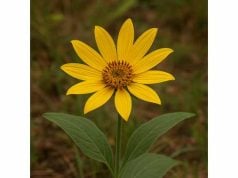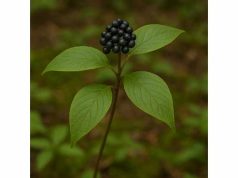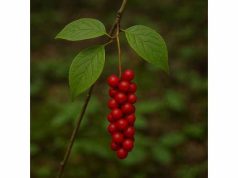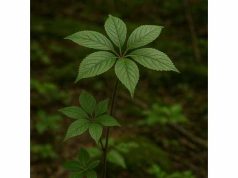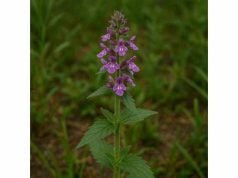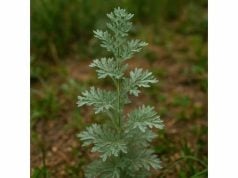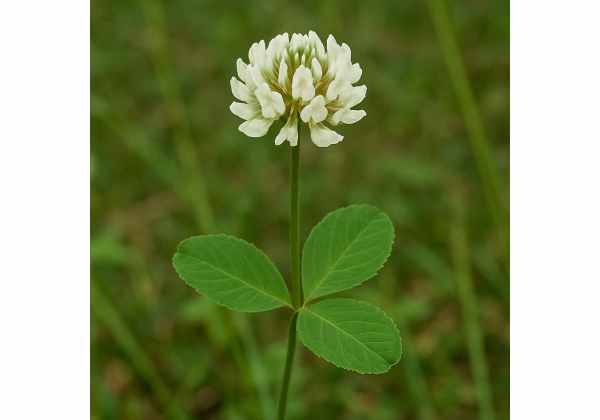
White clover is a humble yet potent herb recognized for its broad spectrum of health benefits, unique active compounds, and versatile medicinal properties. Traditionally valued for its anti-inflammatory, detoxifying, and immune-boosting abilities, white clover has found a place in both natural medicine and culinary practices. Rich in beneficial phytochemicals—such as isoflavones, flavonoids, and saponins—this resilient legume offers a gentle but effective approach to supporting overall wellness. Whether infused as a soothing tea or incorporated into holistic remedies, white clover remains a valuable ally in the pursuit of natural health and vitality.
Table of Contents
- Comprehensive Botanical Profile and Identification
- Phytochemistry and Key Active Compounds Analysis
- Health Benefits and Essential Qualities
- Diverse Uses and Important Safety Considerations
- Scientific Research Insights and Notable Studies
- FAQ
Comprehensive Botanical Profile and Identification
White clover, a perennial herbaceous plant, stands as a resilient symbol of natural healing across the globe. Belonging to the legume family (Fabaceae), it carries the botanical name Trifolium repens. Its modest size belies its significance: white clover often carpets meadows, lawns, and pastures with distinctive trifoliate leaves—each leaflet commonly bearing a faint, pale crescent mark.
The plant’s white or slightly pinkish globular flower heads bloom from late spring to early autumn. Each flower cluster is comprised of numerous tiny, fragrant florets, inviting pollinators such as bees. Stems are slender, creeping, and root at the nodes, enabling the plant to form dense mats over the soil. This low-growing habit makes white clover a valuable ground cover, renowned for both its ecological and herbal benefits.
Growth Conditions and Habitat:
- Soil Preferences: Thrives in well-drained, fertile soils with a neutral to slightly acidic pH.
- Sunlight: Prefers full sun but tolerates partial shade.
- Water Needs: Adaptable to moderate rainfall but tolerates short periods of drought.
- Natural Habitat: Native to Europe and Central Asia, now naturalized worldwide, especially in temperate regions. Commonly found in grasslands, fields, roadsides, and gardens.
Distinguishing Features:
- Leaves: Three oval, green leaflets per stem; rare mutations yield four-leaf clovers.
- Flowers: Spherical heads (1.5–2 cm in diameter), with 20–50 small florets each.
- Roots: Fibrous, shallow, and nitrogen-fixing, improving soil health.
These characteristics not only aid identification but also reveal why white clover is cherished as both a resilient plant and a natural remedy.
Phytochemistry and Key Active Compounds Analysis
The health-promoting properties of white clover stem from a rich assortment of bioactive compounds. Below, we’ll explore the primary active ingredients found within the leaves, flowers, and stems, along with their roles in supporting wellness:
- Isoflavones
- White clover is particularly rich in isoflavones such as biochanin A, formononetin, daidzein, and genistein.
- These plant-based phytoestrogens mimic estrogen in the body, supporting hormonal balance and contributing to the herb’s potential in women’s health.
- Flavonoids
- Flavonoids like quercetin, kaempferol, and rutin serve as potent antioxidants, combating free radicals and reducing oxidative stress.
- They play a significant role in anti-inflammatory and immune-boosting effects.
- Saponins
- Saponins are natural glycosides that have demonstrated cholesterol-lowering properties and may bolster the immune system.
- They contribute to white clover’s expectorant qualities, supporting respiratory health.
- Tannins
- Tannins possess astringent properties that help tone tissues and support wound healing.
- These compounds contribute to the antimicrobial actions of white clover.
- Coumarins
- Compounds such as coumarin provide mild blood-thinning and vasodilatory effects, which can support cardiovascular health when consumed in moderation.
- Polysaccharides
- Complex carbohydrates that may enhance immune function and facilitate cellular repair processes.
- Vitamins and Minerals
- Contains vitamins A, C, and E, along with calcium, magnesium, potassium, and iron, supporting metabolic health and cellular function.
Together, these phytochemicals create the foundation for the broad medicinal and healing properties of white clover, making it an invaluable herb for natural health enthusiasts.
Health Benefits and Essential Qualities
White clover offers a wealth of health benefits, many of which are rooted in both traditional herbal wisdom and emerging scientific evidence. Let’s delve into the core qualities and therapeutic advantages that make white clover a valuable herbal ally.
1. Anti-Inflammatory Support
White clover’s flavonoids and isoflavones provide anti-inflammatory benefits, which may help alleviate conditions such as arthritis, muscle soreness, and minor injuries. Regular consumption—such as in herbal teas—may help reduce swelling and discomfort associated with chronic inflammation.
2. Hormonal Balance
Thanks to its phytoestrogens, white clover may assist in regulating hormonal fluctuations, particularly during menopause and menstruation. This can offer relief from hot flashes, mood swings, and other symptoms linked to hormonal imbalances.
3. Detoxification and Cleansing
The herb’s mild diuretic properties encourage the elimination of excess fluids and toxins from the body, supporting kidney and liver health. Traditional herbalists often recommend white clover for gentle detox regimens.
4. Immune System Boost
Polysaccharides and antioxidants present in white clover strengthen the immune system, helping the body resist infections and recover more quickly from illnesses.
5. Respiratory Wellness
White clover has long been used as a natural remedy for coughs, colds, and congestion. Its expectorant and soothing qualities help clear mucus and ease respiratory discomfort.
6. Skin Health and Healing
Topical applications—such as poultices or infused oils—are used to support wound healing, soothe insect bites, and calm minor rashes. The antimicrobial and astringent properties play a role in promoting skin repair.
7. Cardiovascular Benefits
With compounds like coumarins and saponins, white clover may contribute to healthy circulation and cholesterol balance, supporting overall cardiovascular health.
Key Takeaways:
- Anti-inflammatory and antioxidant-rich
- Hormonal and metabolic support
- Immune-boosting and detoxifying
- Respiratory and skin health ally
- Gentle cardiovascular tonic
These essential qualities highlight why white clover remains a cherished remedy for holistic well-being.
Diverse Uses and Important Safety Considerations
White clover’s versatility extends from the kitchen to the medicine cabinet and beyond. Here’s how you can incorporate this remarkable herb into everyday routines, along with important precautions to consider:
Culinary Applications:
- Fresh Greens: Young white clover leaves add a mild, earthy flavor to salads, soups, or stir-fries.
- Edible Flowers: Blossoms can be sprinkled over dishes, steeped for tea, or candied for unique desserts.
- Herbal Tea: Dried flowers and leaves are often brewed as a gentle, soothing infusion.
Traditional Medicinal Uses:
- Infusions and Decoctions: Used for detox support, respiratory complaints, and as a general wellness tonic.
- Poultices: Crushed leaves and flowers applied to the skin help address wounds, insect bites, and irritations.
- Herbal Baths: White clover-infused water is believed to soothe skin and relax the body.
Cosmetic and Topical Uses:
- Infused Oils: Used in creams or salves to support skin repair and moisture.
- Facial Steams: The aromatic steam from white clover helps clear the skin and support respiratory health.
Preparation Tips:
- Harvest from clean, unsprayed areas.
- Rinse thoroughly to remove dirt and debris.
- Use fresh or dry the plant for long-term storage.
Dosage Recommendations:
- Tea: 1–2 teaspoons of dried herb per cup of boiling water, steeped for 10–15 minutes.
- Topical: Apply as needed to affected areas, ensuring no allergic reaction occurs.
Safety and Contraindications:
- Avoid if pregnant or breastfeeding, due to limited research on safety.
- May interact with blood-thinning medications—consult a healthcare professional if you’re on anticoagulants.
- Allergic reactions, while rare, can occur. Always perform a patch test before topical use.
- Not recommended for those with estrogen-sensitive conditions without medical supervision.
Summary of Best Practices:
- Use responsibly, respecting individual sensitivities.
- Consult healthcare providers for chronic conditions or before starting new herbal regimens.
Scientific Research Insights and Notable Studies
Scientific interest in white clover has grown steadily, leading to several important studies that validate and expand upon traditional uses. The following research highlights the herb’s potential and areas of ongoing investigation:
- 2021, “Phytoestrogenic Activity of Trifolium repens Extracts,” Journal of Herbal Pharmacology
- This study demonstrated that white clover’s isoflavone-rich extracts exhibited significant estrogenic activity, supporting their traditional use for menopausal symptoms and hormonal health.
- 2020, “Antioxidant and Anti-Inflammatory Properties of White Clover: An In Vitro Assessment,” Phytomedicine International
- Researchers found that white clover extracts reduced markers of inflammation and oxidative stress in cell models, confirming the plant’s value as a natural anti-inflammatory agent.
- 2019, “Assessment of Saponin Content and Cardioprotective Effects in Trifolium repens,” Botanical Research Journal
- This investigation focused on saponins’ ability to lower cholesterol levels and improve vascular function, suggesting white clover may benefit cardiovascular wellness.
- 2018, “Potential Antimicrobial Actions of White Clover Leaf Extracts,” Journal of Ethnopharmacology
- The study provided evidence that white clover’s polyphenols and tannins exhibit mild antimicrobial effects, particularly against certain skin pathogens.
- 2017, “Evaluation of Immunomodulatory Properties of Trifolium repens,” Herbal Medicine Science
- Findings indicated that polysaccharide components of white clover may stimulate immune response, supporting traditional claims of immune-boosting properties.
- 2016, “Safety Assessment of Herbal Teas: Focus on Trifolium repens,” Food Safety Review
- Researchers assessed potential risks associated with daily consumption, concluding that moderate intake of white clover tea is generally safe for healthy adults.
Each of these studies adds to the growing understanding of white clover’s medicinal uses and mechanisms, providing a scientific foundation for its continued role in holistic health.
FAQ
What are the main benefits of white clover?
White clover benefits include anti-inflammatory action, immune support, hormonal balance, and gentle detoxification. Its active compounds may help with respiratory health, cardiovascular wellness, and skin repair, making it a versatile natural remedy.
Is white clover safe to consume daily?
White clover is generally safe for healthy adults when used in moderation, such as in teas or salads. However, it may interact with blood thinners and is not recommended during pregnancy or breastfeeding. Always consult a healthcare professional for guidance.
How is white clover used for medicinal purposes?
Medicinal uses of white clover include making herbal teas, topical poultices, and infused oils. It supports detoxification, eases coughs, soothes skin irritations, and may promote hormonal and cardiovascular health when used appropriately.
What active compounds are found in white clover?
White clover contains isoflavones, flavonoids, saponins, tannins, and coumarins. These active compounds are responsible for the herb’s anti-inflammatory, antioxidant, and hormone-balancing properties.
Can white clover help with skin conditions?
Yes, white clover’s antimicrobial and astringent properties may support wound healing, soothe rashes, and reduce inflammation when applied topically as a poultice or infused oil.
Are there any side effects or interactions with white clover?
Potential side effects are rare but may include allergic reactions. White clover can interact with blood-thinning medications and is not recommended for those with estrogen-sensitive conditions without medical advice. Start with small amounts to ensure safety.
Disclaimer:
The information provided in this article is for educational purposes only and should not be considered a substitute for professional medical advice, diagnosis, or treatment. Always consult with a qualified healthcare provider before beginning any new herbal regimen or making changes to your health practices.
If you found this article helpful, please consider sharing it with your friends on Facebook, X (formerly Twitter), or any platform you prefer! Your support helps us continue to create quality, evidence-based content for the herbal community. Follow us on social media for more natural health insights and updates—thank you for being part of our journey!

